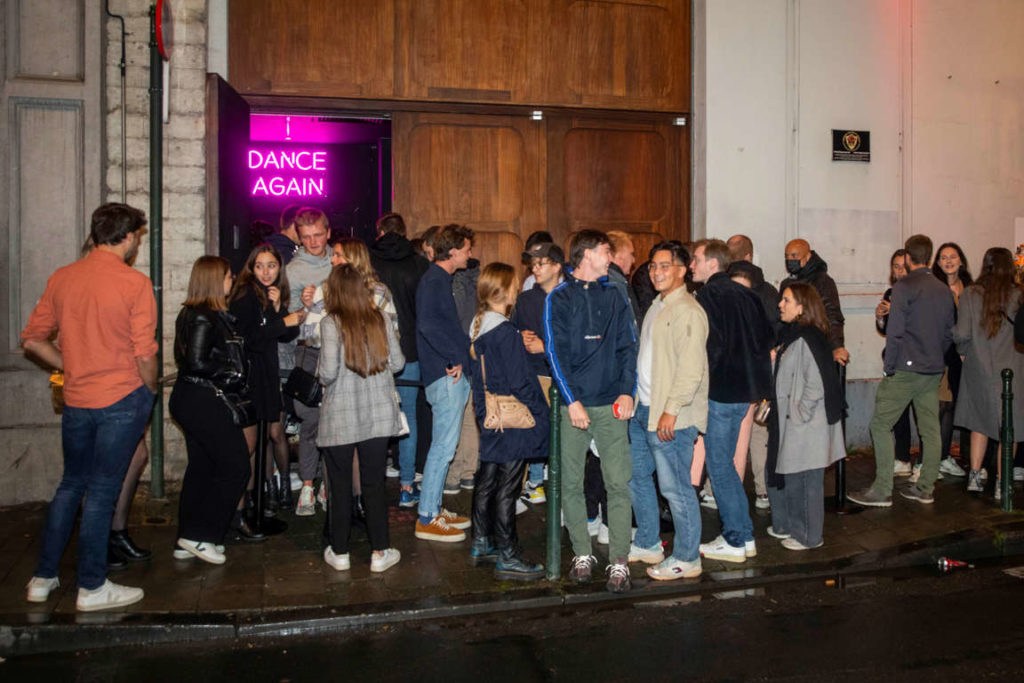Owners of discos, dance halls and other nightlife events do not consider the use of face masks or self-tests at the entrance feasible, they said during a meeting in Antwerp.
Representatives of the nightlife sector from all over the country came together to discuss the state of affairs at the 'Full Circle' event, following the latest measures that were announced by the Consultative Committee on Wednesday evening.
"There was disappointment that we had to meet again to discuss additional measures," Full Circle organiser Jochem Peeters told the Belga News Agency. "This is going to hit our sector hard again."
He said that the sector had been hit hard already since Federal Health Minister Frank Vandenbroucke launched a proposal stating that only vaccinated people would be allowed to enter, and that they would also need a negative test.
Operators immediately stated that this would give the sector "many reasons to panic" as they saw their ticket sales plummet immediately.
"The rumours about tightening the measures were enough for people to stay at home," Peeters said, adding that most discos were already seeing 10 to 15% 'no-shows': people who buy a ticket but do not show up. "That means empty venues and a loss at the bar."
The Consultative Committee announced that the Covid Safe Ticket (CST) would remain compulsory, but that a face mask or a self-test at the entrance would come on top of it.
Related News
- Belgium takes broad measures 'to avoid another lockdown'
- ‘Many reasons to panic’: Nightclub owners fear closures
- 'Bare minimum measures, or complete lockdown,' says health minister
However, such a face mask obligation is not feasible, said the proprietors. "We cannot put a police officer next to every visitor to check that they have their mask on," said Tijs Vandenbroucke, managing director of nightclub Radar in Lokeren.
"The alternative, taking self-tests at the entrance, is practically impossible to organise," he said, adding that the sector feels targeted.
"We were the first to close and the last to reopen," said Vandenbroucke. "We are not the instigators of the waves of infection: there have been no cases of cluster outbreaks in any nightclub."
While the six weeks since they were allowed to reopen were better than average for many clubs, they were not nearly enough to make up for the year and a half of closure.
"We focus on young adults and did see their desire to party again," said Stijn Van Belleghem, creative director of the Brussels club Fuse. "But after such a long closure, we also had to incur start-up costs, and six weeks is far too short to make up for that."
Fuse, too, does not consider a mask or self-test a good solution. "Masks are impossible to control and rapid tests require a huge infrastructure," he said. "We are in a busy street and want to avoid night noise, and would then have to set up a tent to do the self-tests."
Most owners would prefer a compulsory closure with support measures over staying open with these restrictions.
"But that support is virtually non-existent today," said Peeters. "Because we have only been open again since 1 October, we have not been able to benefit from the reduced VAT, for example."

